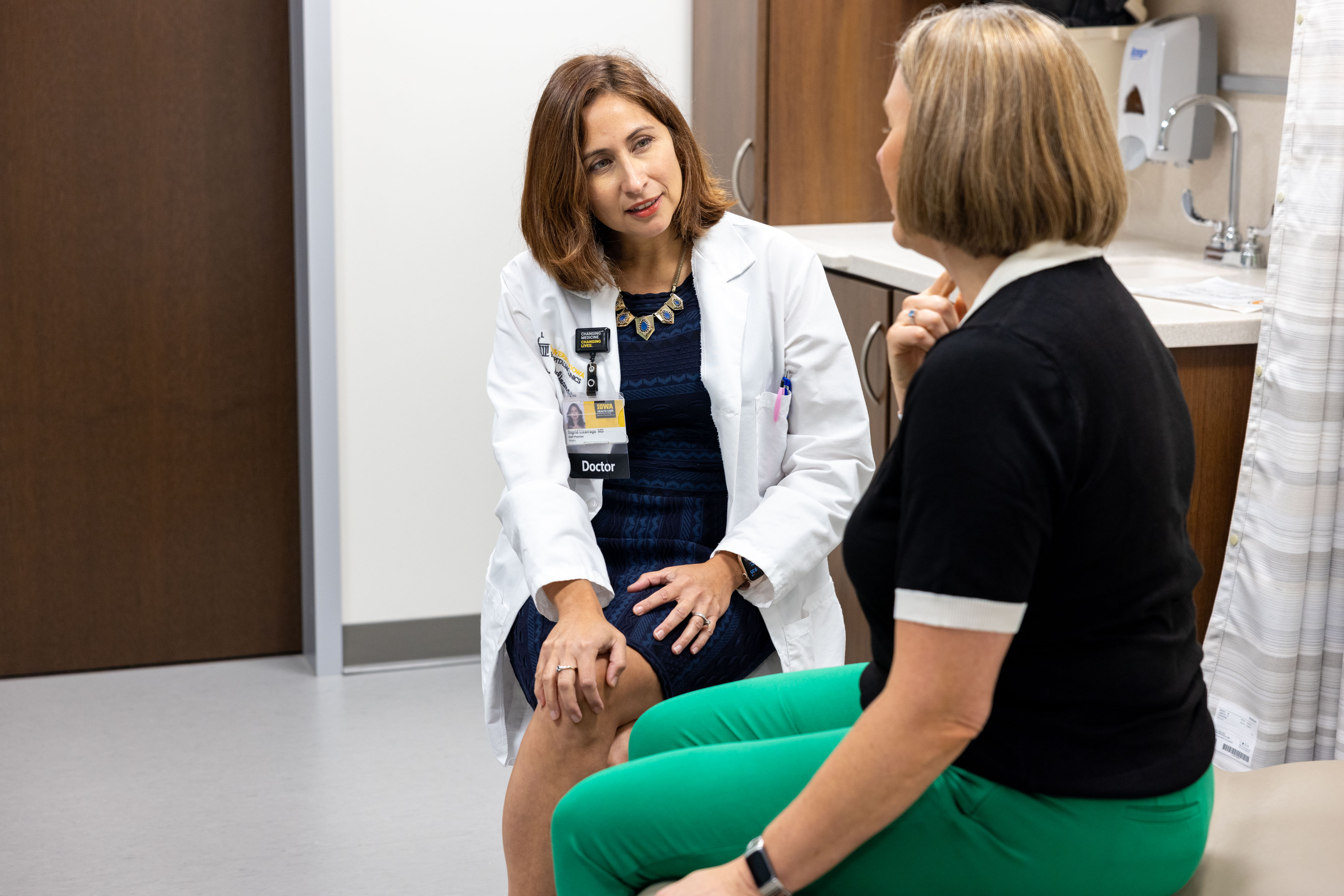Breast cancer patients explain emotional toll of waiting to begin treatment

For many women diagnosed with breast cancer, the diagnostic period—the time between the screening mammogram and the start of treatment—is often filled with uncertainty, anxiety, and distress. One patient compared the feeling to an inner tube being popped.
“First you get popped, then your head explodes, and everything floats around like in cartoons,” they write. “You don’t know what’s happening to you. Then someone patches it up, and slowly, you return to where you were.”
With support from a Holden Comprehensive Cancer Center pilot grant, researchers will launch a new study meant to find ways to improve care and support for those in the diagnostic period. They’ll conduct semi-structured interviews with patient navigators and patients from diverse socioeconomic and racial/ethnic backgrounds, all of whom have recently started treatment for breast cancer at Iowa.
Research will continue to look at already identified areas in which the diagnostic period can be improved, such as streamlining and coordinating appointments, providing clearer explanations for tests, procedures, and treatments, and offering access to services like nutritional support, prostheses, wigs, support groups, and guidance on discussing a diagnosis with loved ones.
Improving patients' experience during the diagnostic period is important because a patient’s physical and emotional well-being can impact their overall outcomes.
